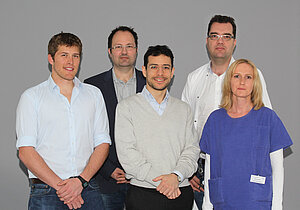Dynamic evaluation of spasticity in patients with hereditary spastic paraplegias
- Applicant
Ioannis U. Isaias, MD, PhD
Professor of Neurology
Neurologische Klinik und Poliklinik
Universitätsklinikum Würzburg
Josef-Schneider-Straße 11
D-97080 Würzburg
Hereditary Spastic Paraplegia (HSP) is a neurodegenerative disorder in which spasticity and lower extremities weakness are the predominant clinical sings. The aim of our study is to describe spasticity under dynamic conditions (unperturbed overground walking) in patients with HSP to provide a more precise description of symptoms at a functional level. This evaluation will possibly allow: (1) to describe different spasticity patterns according to specific genetic mutations; (2) to follow up more closely our patients and to better monitor on-going treatments (e.g. botulinum toxin injection, physiotherapy, etc.); (3) to write a specific software for automatic classification and pattern recognition of myoelectric signals that might be implemented in clinical routine.
We believe that a more detailed and accurate description of spasticity is fundamental to better describe and distinguish HSPs and possibly to achieve a patient tailored therapeutic approach.





